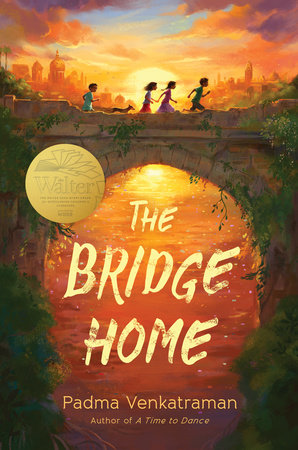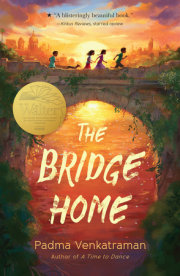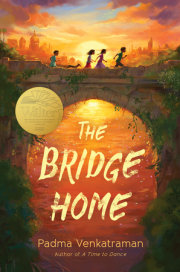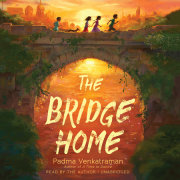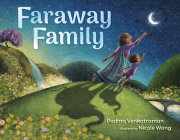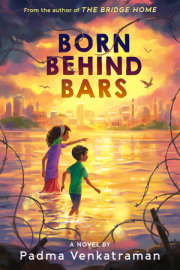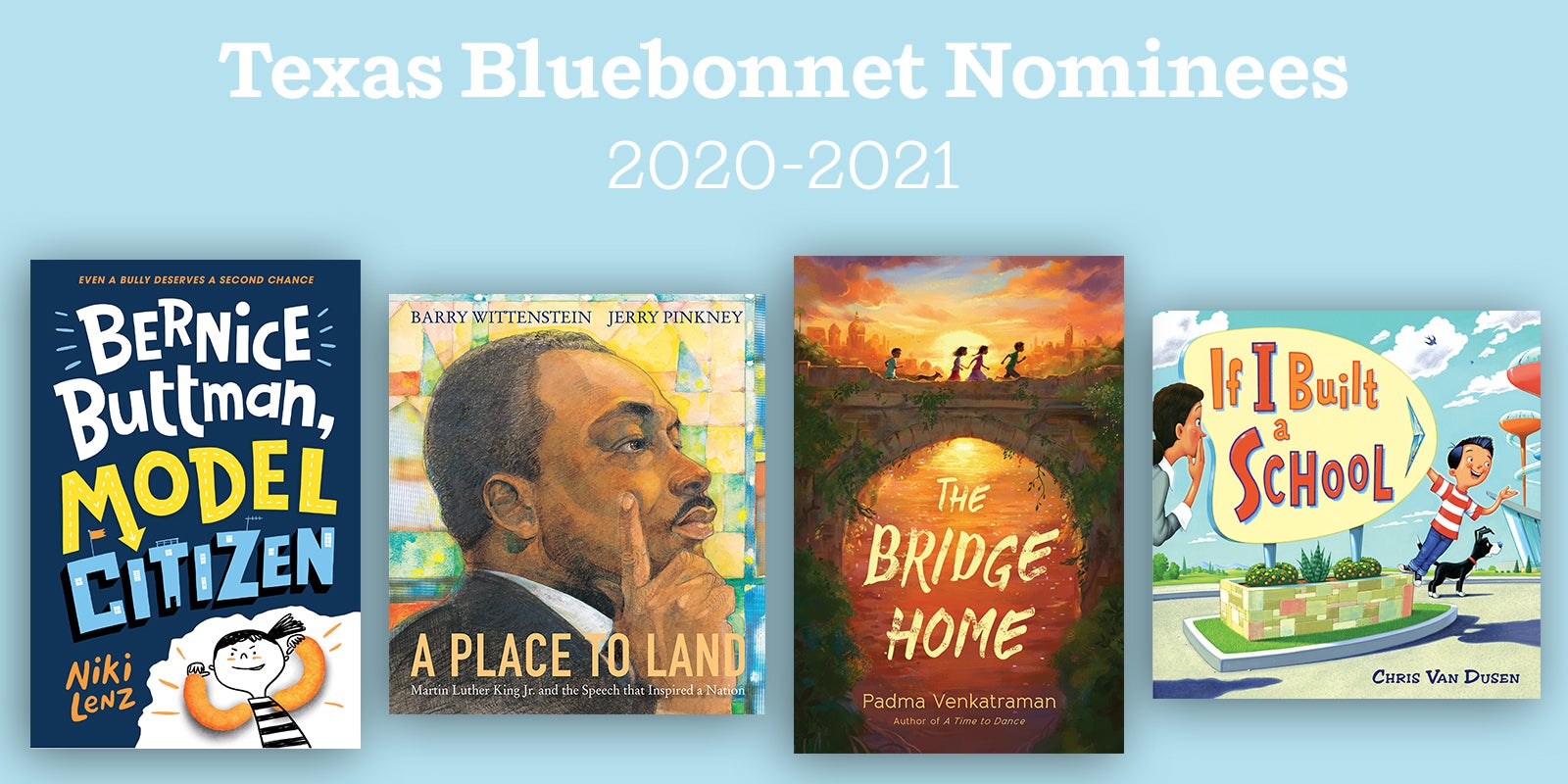1 TOGETHERNESS
Talking to you was always easy, Rukku. But writing’s hard.
“Write her a letter,” Celina Aunty said, laying a sheet of paper on the desk. Paper remade from wilted, dirty, hopeless litter that had been rescued, scrubbed clean, and reshaped. Even the pencil she gave me was made from scraps.
“You really like saving things, don’t you?” I said.
Crinkly lines softened her stern face. “I don’t like giving up,” she said.
She rested her dark hand, warm and heavy, on my shoulder.
“Why should I write?” I said. “It’s not like you have her address.”
“I believe your words will reach her,” Celina Aunty said.
“We’re opposites,” I said. “You believe in everything and everybody. You’re full of faith.”
“Yes,” she said. “But you’re full, too. You’re full of feelings you won’t share and thoughts you won’t voice.”
She’s right about that. I don’t talk to anyone here any more than I have to. The only person I want to talk to is you, Rukku.
Maybe writing to you is the next best thing.
If you could read my words, what would you want me to tell you?
I suppose you’d like to hear the fairy tale you’d make me tell every night we huddled together on the ruined bridge. The story that began with
Once upon a time, two sisters ruled a magical land, and ended with
Viji and Rukku, always together. That story was made up, of course.
Not that you’d care whether it was true or not. For you, things were real that the rest of us couldn’t see or hear.
When I finished the story, you’d say, “Viji and Rukku together?”
“Always.” I was confident.
Our togetherness was one of the few things I had faith in.
2
ROTTEN FRUIT You always felt like a younger sister, Rukku. You looked younger, too, with your wide eyes and snub nose. You spoke haltingly, and you hunched your shoulders, which made you seem smaller than me, though you were born a year before.
Born when our father was a nice man, I suppose, because Amma said he was nice. Before.
Imagining Appa “before” took a lot of imagining. I was a good imaginer, but even so, I couldn’t imagine him all the way nice.
The best I could do was think of him as a not-yet-all-the-way-rotten fruit. A plump yellow mango with just a few ugly bruises.
I could imagine our mother picking him out, the way she’d pick fruit from the grocer’s stall, choosing the overripe fruit he was happy to give her for free. I could see Amma looking Appa over, hoping that if certain foul bits could be cut away, then sweetness, pure sweetness, would be left behind.
Because Amma did choose him. Their marriage wasn’t arranged.
Somehow he charmed her, charmed her away from her family, with whom she lost all touch. They were ashamed, she told me, ashamed and angry with her for eloping with someone from an even lower caste than the one she’d been born into.
It was all she ever said about her family. Not their names or where they lived or how many brothers and sisters she had. Only that they wanted nothing to do with us. And Appa’s family—if he had one—didn’t seem to know we existed either.
Sometimes I wonder if they might have helped us if they’d known. But maybe they’d have done nothing, or acted like our neighbors and schoolmates, who did worse than nothing. Who sniggered or made rude comments when we walked past. Comments that upset you so much you stooped even lower than usual, so low it looked like you wanted to hide your head inside your chest.
On my eleventh birthday, when we came home from school, I was surprised to see saucepans full of food simmering on the stove.
“Amma, you cooked!” I loved evenings when Amma felt strong enough to prepare dinner for us, instead of the other way around. “You even made payasam?” I inhaled the sweet scent of milk rice that wafted through our apartment.
“Not just that.” Amma dug out a small money pouch from its hiding place, underneath the rice sack. “Here’s two hundred rupees, for you to buy something for yourself.”
“Two hundred rupees!” I was so astonished that I almost dropped the pouch before securing it to my ankle-length skirt.
“I’ve been saving a little of what Appa gives me for food and rent. I wanted to buy something, but I was too tired to go shopping for a gift, and I wasn’t sure what you’d like.”
“This is the best gift, Amma. Thanks.”
“Sweet?” you said. “Sweets for Rukku?”
“Proper food first,” Amma said. “For you both.”
Amma heaped rice onto our plates and ladled some hot, spicy rasam over the top. She started eating, but you just stared at your food, your hands crossed over your chest.
“Come on, Rukku.” I rolled a mouthful of rice and rasam into a ball and tried to feed you.
“No!” you yelled. “Sweet! Sweeeeet!”
“Don’t get angry, Rukku. Please? Eat and I’ll tell you a story tonight.”
“Story?” You calmed down.
Amma looked at me gratefully.
We’d just finished our dinner when we heard Appa’s heavy footsteps. The sound of him staggering up the stairs to our apartment told us all we needed to know.
“Get in your room. Quick,” Amma said.
“Sweet,” you moaned, but your hand met mine and we crept into our bedroom. In the darkness, we huddled together, unable to block out the sound of Appa yelling at Amma. We rocked back and forth, taking comfort in each other’s warmth.
Appa broke Amma’s arm that night, before storming out of the house.
“I need to see a doctor,” Amma came and told us. Her voice was tight with pain. “Stay with Rukku. If they see her—”
She didn’t finish her sentence. She didn’t need to. She’d told me a million times how scared she was that if you set foot in a hospital, the doctors might lock you away in “a mental institution.”
You curled up on our mattress with your wooden doll, Marapachi. I smoothed your brow.
The patch of moonlight that slipped past the rusty iron bars on our window fell on the book that our teacher, Parvathi, had given me before she moved away. No other teacher had ever been so nice, even though I was often at the top of the class.
I opened the book. In a shaking voice, I read you a tale about a poor, low-caste girl who’d refused to accept the life others thought she should lead.
“You think we could change our lives, like that girl did?” I said. “And Parvathi Teacher. And Subbu. Or at least his family. They all left for a better life in a big city.”
Subbu had been the only friend we’d had in school. His long face and thin frame had made him look as weak as a blade of grass, but he’d always told off the other children who teased us.
“I miss him, Rukku. Think he ever misses us?”
You answered me with a snore.
I was glad you’d fallen asleep, but I stayed awake, worrying and hoping. I hoped Amma would finally tell someone about how she had been hurt, and that they’d swoop down and rescue us.
But I should have known she’d never tell.
3
BREAKING The next day, Amma pretended like nothing had happened.
You never pretended.
“Owwa,” you announced. You patted our mother’s good arm and stroked the sling on the broken one.
When Appa came home that evening, his eyes bloodshot and his breath reeking as usual, he set packages wrapped in newspaper on the cracked kitchen counter. “Presents for my girls.”
“How nice!” Amma’s voice was full of false cheer.
“Sorry I lost my temper last night.” He placed a finger on her chin. “I’ll never do it again. Promise.”
I saw hope creep into Amma’s eyes. Desperate, useless hope.
Suddenly, I wanted to shout at her, more than at him.
Have you forgotten how often he’s broken his promises? He ripped open one of the packages and dangled a pair of bangles in front of you. But before your fingers could close over them, he jerked them away.
“Catch!” He launched one bangle over your head, and as you slowly raised your hands to try to catch it, he sent the other flying so fast it struck you before tinkling to the floor.
You squeaked like a trapped mouse.
He laughed.
How dare he think it was funny to trick you. How dare he mock your trust.
When he tossed a package in my direction, I didn’t even try to catch it. I crossed my arms and watched it land on the floor.
“How bad both our girls are at catching!” Amma’s voice was high-pitched and tense as a taut string.
“Stupid,” he said. “One with slow hands, and the other with a slow brain.”
“We’re not stupid!” I picked up my package and flung it at him.
Nostrils flaring, he slapped me.
“Please,” Amma begged. “Not the children.”
You leaped and thrust your doll between me and Appa.
He kicked out at you.
At you.
Furious, I lunged at him. You joined in, and the two of us barreled into him together. He swayed and fell backward, but not before he struck your face.
Amma caught him, instead of letting him crack his head on the floor.
“Let them be,” she pleaded.
Appa grunted.
I was sure he’d come at us again, but instead, he crawled into their bedroom and passed out for the night.
You ran a finger around the edges of what felt like a painful bruise blooming on my cheek. “Owwa,” you said, paying no attention to your own wound. “Poor Viji.”
With her unbroken arm, Amma grabbed a towel. She dipped it into the cool water in our earthen pot and pressed it against your bleeding lip. You struggled, until I promised it would help you heal.
“Leave Appa,” I told Amma. “Let’s go somewhere else.”
“How would we live, Viji?”
“We’ll find a way.”
“We can’t manage without him. No one employs uneducated women with no skills.” Her voice was flat. Defeated. “Just don’t talk back anymore, Viji. I couldn’t stand it if he hurt you again.”
“He hurts you all the time,” I said. “And now that he’s started on us, nothing’s going to stop him.”
She didn’t argue. Her head drooped, and when she finally found the strength to lift her eyes to mine, I could see she knew what I’d said was true.
“I can’t bear seeing you hurt, but how can I stop him?” She gazed at the pictures of the Gods and Goddesses smiling down serenely from our kitchen wall. As if they’d suddenly leap into life and start helping.
“Please understand, Viji.” She was begging me, the same pathetic way she’d begged Appa. “I promised . . . to be a good wife . . . no matter what. I can’t leave.”
But after what he’d done to you, I couldn’t stay.
As I gazed at Amma’s trembling chin, I realized how different we were. Amma trusted that if she put up with things, she’d be rewarded with another, better life after she died. It made no sense to me why any God who made us suffer in this life would start caring for us in the next.
If I wanted a better future, I needed to change the life we had. Now.
The more I thought about our differences, the surer I felt that I could protect you better than she could. She hadn’t tried to stop Appa from beating us. All she’d done was beg. I would never become like her, I promised myself. I’d never beg anyone for anything.
At the first light of dawn, while Amma and Appa slept, I woke and changed into my best blouse and ankle-length pavadai as silently as I could. Around my waist, I tied the drawstring purse with Amma’s gift of money. Then I crammed a sheet, some towels, and a change of clothes for each of us into our school backpacks. I added a bar of soap, a comb, and the pink plastic jar of tooth powder to your bag; from the kitchen, I grabbed a bunch of bananas—your favorite fruit—to add to mine.
Our bags were heavy, but I couldn’t bear to leave behind the book from Parvathi Teacher. Carrying it along was like taking her blessings with us, I told myself as I forced it into my bag.
Then I woke you.
“Shhup. Don’t say a word, Rukku, please. Just get changed. We’re leaving.”
Sleep weighed down your eyelids, but you did as I asked. Perhaps it felt like a dream to you.
As we shuffled toward the front door, you cast a bewildered glance at our parents’ bedroom.
“Amma?” you said.
Memories of our rare happy moments gleamed in my mind, like sunshine slipping into a dark room: the day Amma had helped you make a bead necklace, the night she’d sat by our beds and listened to the story I’d told you.
For a moment I hesitated. But then I glanced at your cut lip—the proof Appa had given me that he’d keep on hurting you as long as you were nearby.
We had to leave, right away, before fear or doubt slowed me down.
4 ESCAPE “School?”
“No, Rukku. We’re going to a new place. A nicer place.”
“Nicer place?”
“Far from here. You and me.”
“Rukku and Viji together?” You offered me your soft, trusting hand.
With our fingers interlinked, I felt braver. I led the way to the main road, where buses to and from the city roared through our village.
In front of the bus stop sign, a woman was already waiting, chewing tobacco as placidly as a cow chewing its cud. A large basket filled with coconuts was beside her.
“Waiting for the bus to the city?” My voice trembled as I checked to make sure we were in the right place.
“
Aamaam,” she confirmed. Her eyes roved across my face, which was smarting with pain, and then settled on your cut lip, but she didn’t comment.
Soon enough, a bus arrived, raising a cloud of red dust that made you sneeze. The woman balanced the coconut basket on her head and climbed in.
“Come, Rukku.”
“No.” You dug in your heels.
“Rukku, come!” I stepped into the bus.
“No, no, no,” you sang out. “No.”
The driver honked to hurry us.
“I’ll give you a sweet.” I tugged at you. “I’ll give you a sweet when we’re in the city.”
You wriggled free of my grip.
“Get in or get out!” the driver yelled. “I can’t wait all morning!”
The bus started to pull away.
I leaped out.
You jumped in.
“Vijiiiiii!” You leaned halfway out of the bus.
Horrified, I raced behind it.
I’d never have caught up to that bus if it hadn’t been for the conductor’s shrill whistle, calling the driver to a stop.
I climbed in, squishing down my sudden urge to haul you off the bus and run home.
The conductor helped me lead you down the aisle.
“Sweet?” You settled into a seat, and I slid in beside you.
“Not yet.” I tried to catch my breath. “Don’t have any sweets, Rukku.”
The conductor looked at me and then at you, and stuck a hand in his pocket and pulled out a hard green sweet that had melted out of shape.
Green was your favorite color. You gave him a lopsided grin.
“Thanks,” I said. “You’re very kind, sir.”
“No need for thanks. Going to the city?”
“Yes, sir.”
He handed me our tickets.
My hand was shaking as I opened the drawstring purse at my waist, partly because I was nervous, partly from shock at how high the fare was. The tickets used up most of our money.
You unwrapped the sweet, popped it in your mouth, and stared at the green rice fields that flashed past the window. I wondered if you understood we were leaving forever. I was never sure what the words
yesterday and
tomorrow meant to you. Your sense of time was different from mine.
“Marapachi?” You rummaged in your bag, pulled out your wooden doll, and talked to her for a while. Then you stuck her back in your bag and slumped against my shoulder. The motion of the bus soon made your eyelids droop.
While you slept, doubts slithered into my mind. Had I done the right thing? Where would we go, once we reached the city? How would we survive?
5 SHARDS OF GLASS You jerked awake as the bus thudded to a halt. “We’re here,” I said, trying to sound cheerful.
The open-air bus terminal was packed with people shouting, laughing, and arguing. The smell of ripe guavas, piled high on a handcart pushed by a vendor, mixed with the smell of diesel smoke from buses. You held Marapachi close to your chest and stroked her wooden head.
As I wondered which way to go, I heard a voice right behind us. “There you girls are.”
I whipped around.
It was the bus driver. He’d crept so close behind that I could feel his hot, foul-smelling breath on my neck. “You girls need a job? Money? I’ll show you around the city.”
I didn’t dare answer.
“What’s her name?” He jerked a thumb at you.
For once, I was relieved he hadn’t asked you directly. You weren’t as suspicious of people as I was, and the last thing we needed was to strike up a conversation with him.
I quickened our pace, but he kept up.
“Come with me.” His hand came down on my arm and formed a vise.
“Let go!” I struggled. “Let go!”
A few bystanders glanced our way, but no one tried to stop him.
I tried to kick his shin—and missed.
“Don’t you dare, you filthy low-caste brat!” He twisted my arm so hard, I gasped.
“No,” I heard you cry. “No!”
Your arm swung back, and with all your might, you flung your hard wooden doll at him.
Marapachi hit his forehead with a satisfying thwack. He cursed, his grasp loosening enough for me to wrench free.
We raced away, deeper and deeper into the safety of the crowd. When I finally felt safe enough to risk a look back, the bus driver was lost to my sight. Still, I decided we’d be better off if we crossed the road outside the terminal, putting as much distance between us as possible.
We waited for a break in traffic. And waited.
I’d never seen such an endless flood of vehicles and pedestrians.
Other people were darting in and out of the traffic, disregarding the deafening horns. Somehow they weren’t getting run over. Holding you close, I stepped into the gap between a three-wheeled rickshaw and a motorbike. The motorbike almost ran over my toes.
“No, no, no!” You held my hand in a crushing grip.
“Move!” someone behind us snarled.
I heard the unlikely tinkle of a cow’s bell. A great white cow was fording through the river of traffic, vehicles parting to let it through.
“Good cow.” You put your hand on the beast’s side as though you owned it. It didn’t seem to mind.
Protected by the cow’s bulk, we managed to reach the other side of the street.
“Good cow.” You ran your hands along its neck.
“Yes, it’s a good cow, but that bus driver was bad, Rukku. We’ve got to keep moving.”
We came to a slightly less busy side street. On either side were run-down buildings that reminded me of our apartment. Towels, underwear, and faded saris flapped on clotheslines hung across the balconies.
Turning the corner, we found ourselves on an even narrower street, lined with shacks selling food. In one of them, a man stood behind a rickety counter. You watched, fascinated, as he poured steaming tea from one glass tumbler into another, until a layer of froth bubbled across the rim.
“We deserve a treat,” I said. “How about sweet, milky tea instead of the sweet I promised you?”
“Tea,” you agreed.
I was worried about how little money we had left, so I ordered us just one to share. As it warmed my hands and bubbles of froth tickled my lips, I knew it was worth the price.
I sipped slowly, then held it out to you. “Careful, Rukku. It’s hot.”
But before you could wrap your fingers around the slippery glass, I accidentally let go. You squealed, “Ai-ai-yo!”
Horrified, I watched the glass shatter on the ground, spattering tea across the hems of our skirts.
“Pretty.” You reached down for a sparkly shard of glass.
“Don’t touch!” I grabbed your hands. “It’s sharp, Rukku! It’ll give you an owwa!”
“Owwa,” you echoed sulkily.
The teashop owner scowled at us. “Do you know how much that glass cost?” he asked.
Not that much, I was sure, but just before I opened my mouth to apologize, an idea struck me.
“Sir?” I offered. “We’ll work to pay for the broken glass.”
“Okay. Clean up the mess.” The teashop owner stuck his hands on his hips. “Then go to the kitchen and help my wife.”
“Yes, sir,” I said.
“Viji?” You sounded uncertain.
“Everything’s fine, Rukku.” I gave you a quick hug. “We’ve found our first job.”
Copyright © 2019 by Padma Venkatraman. All rights reserved. No part of this excerpt may be reproduced or reprinted without permission in writing from the publisher.

